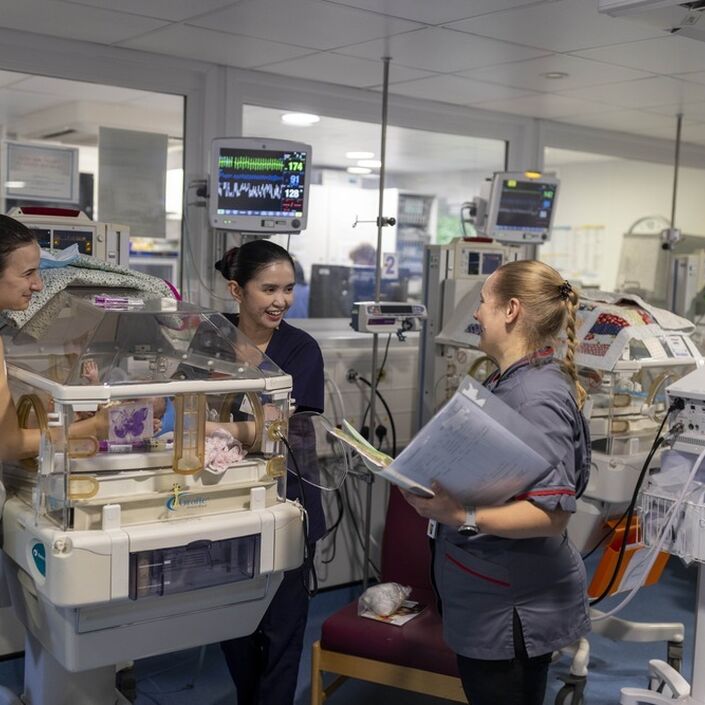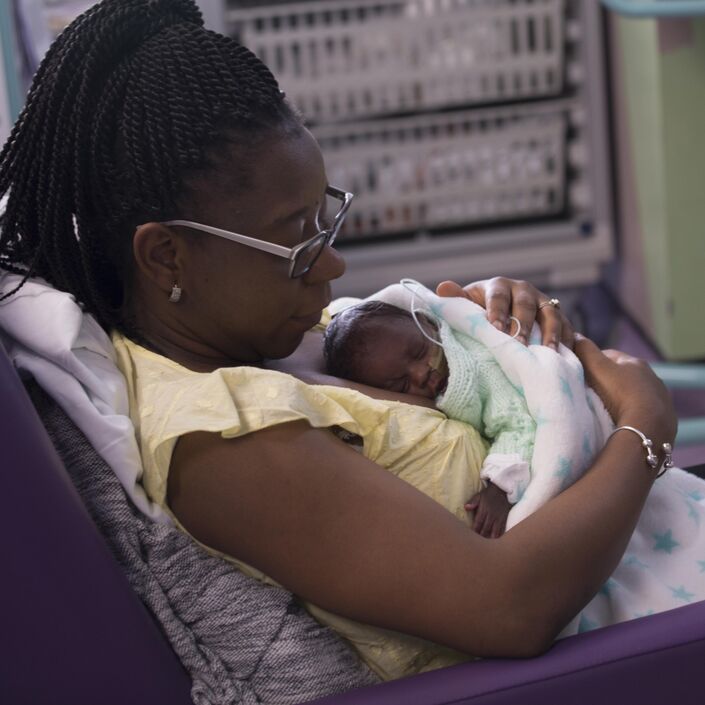Protecting against infections
Babies in the neonatal unit are vulnerable to infections so there are hygiene policies to protect them. The nurses on your unit can explain the details to you.
Everyone coming into the neonatal unit must wash their hands and forearms thoroughly and, after drying, use the sanitising hand gel provided.
The unit might also have what’s called a ‘bare arm policy’. This means no clothing or loose jewellery can be worn below the elbow.
Family members will need to stay away if they have COVID-19, a cold, the flu or a tummy bug, or if they have whooping cough, measles, chickenpox or other contagious infections. This will apply to siblings and other family members, and may also apply to you if you are seriously ill.
This can be hard. If you are not able to be with your baby because you are sick, then the unit will arrange other ways for you to stay up to date with their condition.
Your baby might be tested for infections when they are first admitted into the unit. This is done by lightly brushing your baby’s skin with a cotton swab. This is to help the staff know what they might need to treat.
Read more about washing your hands in our information on common infectious illnesses.
Being with your baby
Parents are not considered visitors, as you should be able to be with your baby as much as you would like. It will be very important to the staff that you are not separated from your baby unnecessarily.
For security reasons, the unit will only be accessible to staff with relevant passes. Parents and visitors will usually be able to ring a doorbell to gain access. Each unit has its own visiting policy.
The unit may have set visiting hours for other family members, and might ask you to limit the number of people. This allows the babies to get enough rest and lowers the risk of infections.
Sometimes there is not much space and the staff need room to work safely. Most units encourage brothers and sisters, grandparents and other family members to visit. This will depend on current restrictions which can change due to infection control measures.
If you can, it may be nice to bring your children to see their new sibling in hospital. Even when they can’t visit, your children can stay in touch with your new baby. You might like to give your child a picture of their sibling to keep, or organise a video call with the staff or when you are there.


